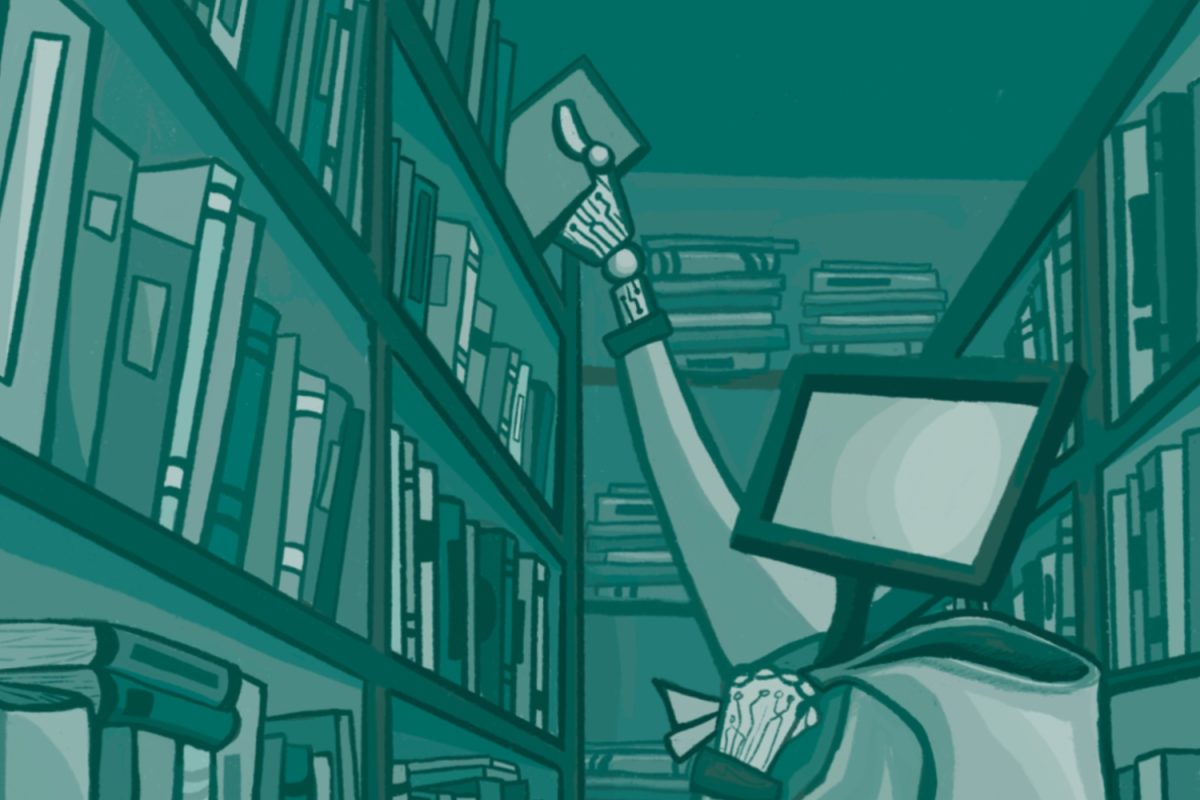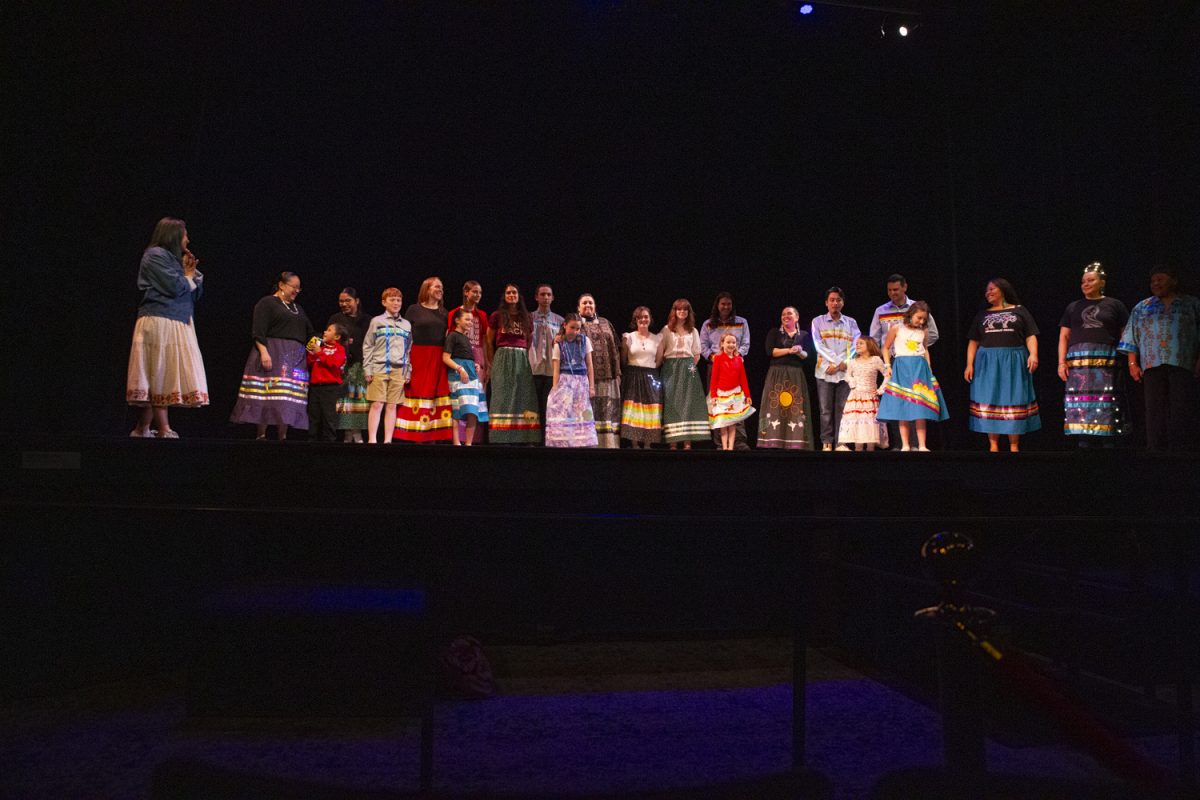Artificial intelligence has the potential to be used as a tool to improve writing if employed correctly.
Some authors, however, are worried about what that could mean.
On Sept. 20, The Authors Guild and 17 specific authors — one of whom, Elin Hilderbrand, was previously affiliated with the Iowa Writers’ Workshop — were named in an ongoing class action lawsuit against Open AI on the basis of copyright infringement. The Authors Guild recently published an open letter to leaders of generative AI companies stating its concerns.
“I signed the open letter because I believe that AI poses a real concern for creative endeavors,” Joseph LeValley, an author and University of Iowa alum, said. “The usage of authors’ work in these AI programs should at least be compensated.”
LeValley has written six novels in his career and is currently working on a seventh. “Burying the Lede” was his first novel.
He decided to join the Authors Guild because it has the ability to lobby on behalf of writers on a variety of legal issues. When working as a group, writers have more influence than they would individually, according to LeValley.
“If I come up with a cool plot twist no one has ever seen before — that’s what sells my mystery book. But, if one of the AI programs swallows up that idea, and the next day it shows up in a dozen new books, suddenly the value of that plummets to nothing,” LeValley said. “We need systems in place that protect the creative person from the computer’s ability to diminish their value.”
The main concern expressed in the lawsuit and open letter was the uncompensated use of copyrighted books that were used to train and “feed” generative AI programs, the most prominent of which is OpenAI’s generative chatbot, ChatGPT.
“Generative AI companies are basically building language models out of everything on the web, everything they can get their hands on, including copyrighted books,” Juan Pablo Hourcade, a UI computer science professor, said.
Language models work somewhat similarly to the functions found in email apps or Google Docs that give suggestions to users about how to finish phrases or sentences, just on a larger scale. Instead of simply suggesting a few words to end a sentence, the model will suggest entire pages based on previously seen work.
In regard to published novels, when looking at thousands of books on the internet, generative AI can locate similar patterns in writing style and word choice.
This is especially true for popular novels, which tend to provide not only the books themselves but also thousands of written articles analyzing various positive and negative aspects of the books.
When a user on ChatGPT or other AI software asks the AI to generate a good story, for example, it has the ability to mimic the writing styles of authors whose books it has “seen.”
The result is the generation of potentially hundreds of writing samples that read as if a human being has created them.
In the opinion of the Authors Guild and several of its nearly 14,000 members, usage of copyrighted material is not ethical and is, in fact, a threat to the hard work and creativity involved in the process of writing novels.
If new books can be generated in seconds, AI poses a threat to authors’ incomes as well. According to the open letter, the median income for full-time writers was only $23,000 in 2022. An increase in AI-produced work would likely make the average income for human writers decrease even further.
Another author who added his name to the open letter was Andrew Shaffer, who has written over eighteen books in multiple genres, including mystery, horror, and humor. In addition to his work as a bestselling writer, he is an artist, causing the rise of AI to impact both of his crafts.
“I think part of the lawsuit is discovery in terms of how they’re building this stuff, which is often behind closed doors,” Shaffer said. “How are they using our work to train them?”
Shaffer first found out that his writing was being used to train generative AI when he found his name in an Atlantic article published in September about which books were training AI machines and saw that his books were on the list.
Only a few years ago, the talk of computer programs able to write novels would have only been a fantasy. Now, the technology has advanced so rapidly that new AI abilities seem to become possible every day.
It is still unclear how the concerns expressed by the Authors’ Guild will be addressed, but the topic will still continue to be relevant as authors and AI developers try to find common ground.
“[The open letter] is about asking the public to take a pause on this. We’re releasing stuff into the world right now without any guard rails,” Shaffer said. “It’s not just about whether it’s ingesting the writers’ work, but also the content it’s spewing out. There’s a lot of questions surrounding that.”












